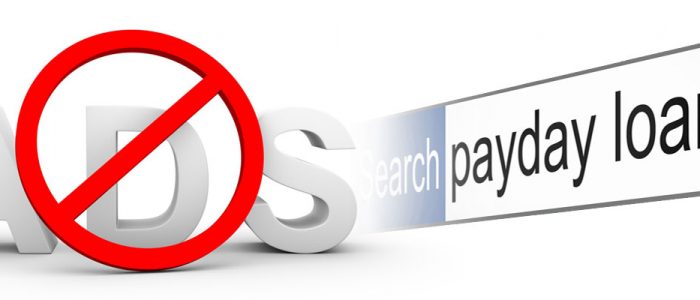Google’s Update: Payday Loan Advertising to be Banned Starting From 13 July 2016
Ads that are well crafted would be capable of matching the readers to engaging and intriguing brands, as well as those products or services that are unique to us these days. Regretably, not all ads are created with a genuine intention in mind. Some ads are out there to promote damaging or even inferior products, and some would mislead their readers, giving them the impression that the product being offered is what they really need. That is why Google brought forth a comprehensive list of policies to curb these ambiguous and deceptive ads and the solution is to remove them completely. In the previous year 2015, there have been more than 780 million ads that were removed due to a variety of reasons, such as falsifying and fabricating scams. Ads that were forged for the finance industry are always being closely inspected as it can have a adverse effect on a person’s life.
Taking into consideration, Google will be implementing an update coming this July 13, 2016. Prohibiting Payday loans ads and some related products from their search engine. long story short, Payday loan ads showing a repayment period within 60 days of the date of issue would not be advertised. In the US, ads with loans that have a 36% APR or higher would be excluded completely. After reviewing regulations and policies, the outcome that was deduced was that these private loans tend to lead to exorbitant repayment with interests, as well as high defaulting figures for borrowers. However, these modifications does not affect the organic results from the different search engines. That being said, search results in the coming future would still reveal the organic results from these payday lenders.
The priority of this update is to protect the users from deceptive products or services, at the same time making sure that it will not have a negative influence on the other different loans, such as commercial loans, student loans, car loans, and mortgages,
Referencing from the president and CEO of the Leadership Conference on Civil and Human Rights, Wade Henderson, he has faith that this new implementation would be able to address numerous deep-rooted distress experienced by the civil rights community with regard to these predatory payday lenders.
For the past few years, these private entities have been known for adopting deceptive marketing means to prey on gullible consumers to get them to take up a loan with preposterous high interest tied to them, masking it as an affordable alternative.
Google will continue to analyse the effectiveness of this new policy with hopes that lesser browsers would be the next target or victim to fall prey to these companies. On the contrary, this resulted in a major disapproval from the Community of Financial Services Association of America, as they represent those who are handling short-term loans.
In their honest opinion, they deemed this kinds of loans to be acceptable and low profile in nature, as these businesses are the ones who are aiding to a pool of customers who are in need of short-term credits that cannot be obtained from majority banks around them.
Many are commenting that Google has a this strong stereotype about the money lending industry instead of differentiating the good from the bad. In view of existing data, this will not be the first time that Google have excluded ads of such. A similar incident occurred back in 2014, Google banned various ads in the nature of pornography, healthcare and gambling, along with related products or services.
The affected ad revenue after the ban still remains a secret till date. However, it’s a known fact that these payday loan are much more profitable compared to even those famous chain outlets such as McDonalds in the US. Google strongly believes that the Internet should not be a channel that would take advantage of the helpless consumers who need help with.


